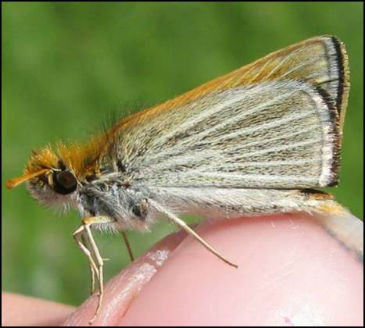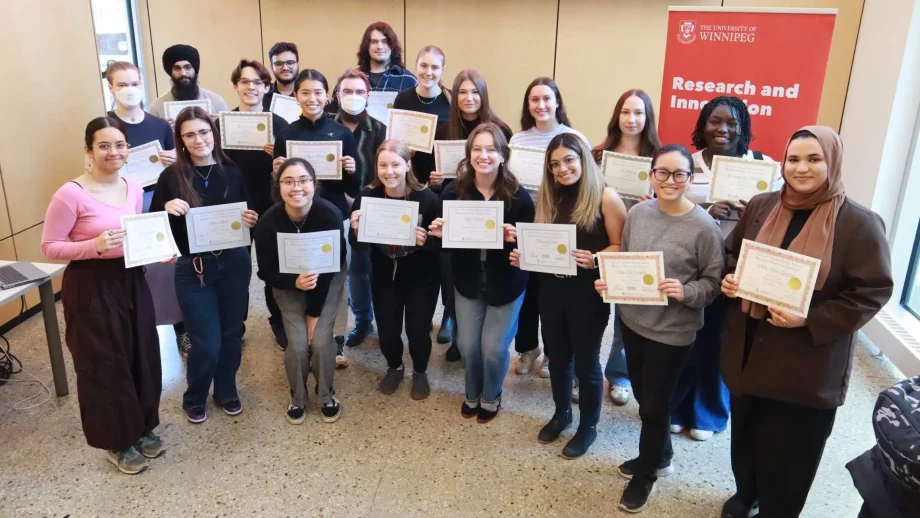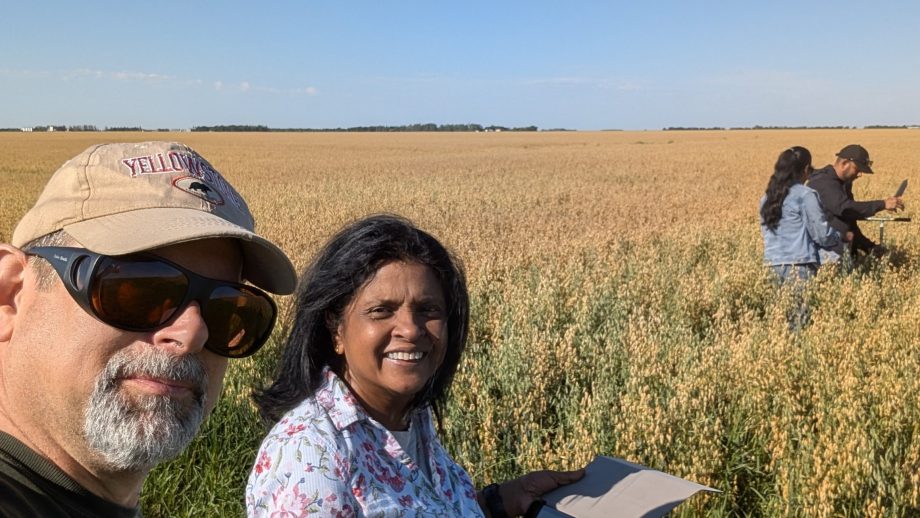
Poweshiek Skipperling – photo supplied
WINNIPEG, MB – The Nature Conservancy of Canada, The University of Winnipeg and research teams from across the continent are excited and relieved to confirm the presence of the endangered poweshiek skipperling butterfly in the Tall Grass Prairie Natural Area of Southeast Manitoba.
The poweshiek skipperling, a small, brown and orange winged butterfly, is known in Canada to inhabit only 17 fields within the Nature Conservancy of Canada’s Tall Grass Prairie Natural Area. The finding confirms the endangered species has persisted for another year. Annual surveys are led by the Nature Conservancy of Canada and University of Winnipeg researchers, during a limited three to four week period between the months of June and July when the butterfly is active. Recent estimates suggest that there may be fewer than 100 poweshiek skipperling butterflies remaining in Canada.
The Nature Conservancy of Canada, The University of Winnipeg and their many partners on both sides of the border are actively engaged in several poweshiek skipperling conservation programs: annual surveys, Tall Grass Prairie habitat conservation and restoration, research into habitat needs and genetic diversity, captive rearing and outreach.
This year, the Nature Conservancy of Canada and The University of Winnipeg are asking people to join in the efforts to save the poweshiek skipperling by supporting critical research to better understand and mitigate the butterfly’s decline, as well as recovery activities through a recently launched crowdfunding page. The team of researchers is looking to raise $25,000. Gifts will make a big difference in ensuring this crucial work can continue without delay. Donors will also be helping students gain important hands-on experience in their field of study.
The decline of the poweshiek skipperling raises concern for the ecological health of prairies as a whole, as species populations are often representative of the overall health of the ecosystem. Butterflies react very quickly to change in their environment, which makes them excellent biodiversity indicators. A healthy butterfly population can be a sign that other species are also doing well in the area. The work from these surveys will help us plan our future conservation efforts.
QUOTES:
“Ecosystems operate in an extremely complex manner. The consequences of a disruption or disappearance of any of its animals or plants, like the skipperling, can lead to changes that are impossible to fully understand until it’s too late to reverse,” says Cary Hamel, Conservation Science Manager for the Nature Conservancy of Canada’s Manitoba Region. “It is critically important that we find a way to save the poweshiek skipperling to keep it from going extinct. This will benefit the skipperlings’ surrounding environment and the other creatures and plants that share this delicate and unique habitat. Time is of the essence and there is no room for delays in our work.”
“We are fortunate to have such an engaged group. In partnership with the Nature Conservancy of Canada and my dedicated team of student researchers, we have been able to gain a greater understanding of the skipperling and its behaviour,” says Dr. Westwood, Professor, Environmental Studies and Sciences, at The University of Winnipeg. “This information is critical to finding ways in which we can reverse the trend of their steep decline in population.”
Learn More
The Nature Conservancy of Canada is the nation’s leading land conservation organization, working to protect our most important natural areas and the species they sustain. Since 1962, NCC and its partners have helped to protect 2.8 million acres (more than 1.1 million hectares), coast to coast. In Manitoba, we have conserved over 63,000 acres across nine natural areas critical to Manitoba’s biodiversity.
The University of Winnipeg is celebrating its 50th anniversary throughout 2017. UWinnipeg is noted for academic excellence, Indigenous scholarship, environmental commitment, small class sizes and campus diversity. We are committed to improving access to post-secondary education for all individuals, especially those taking no-traditional paths to university.
-30-
Media Contacts
Christine Chilton
Communications Manager
Nature Conservancy of Canada, Manitoba Region
Tel.: 1-204-942-7416
christine.chilton@natureconservancy.ca
Diane Poulin
Senior Communications Specialist
The University of Winnipeg
Tel.: 1-204-988-7135




